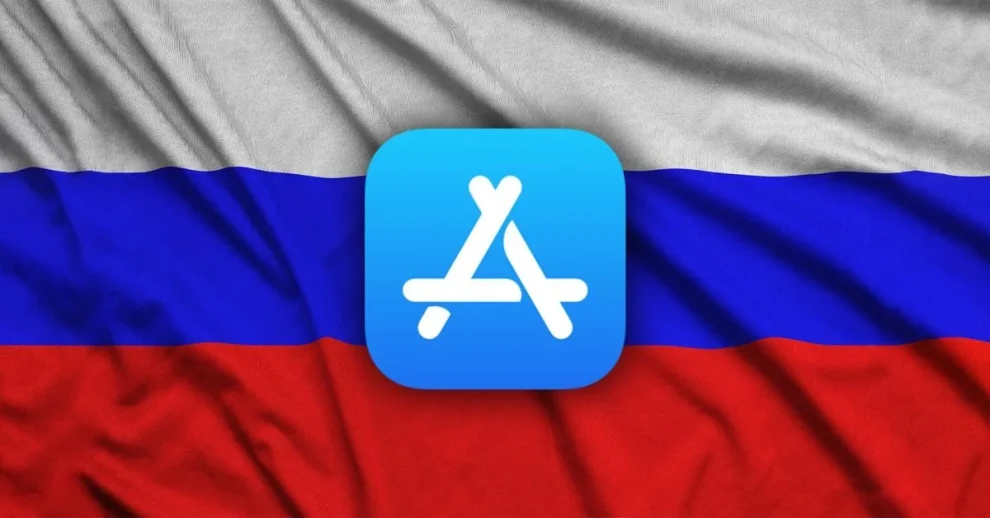The Tech giant Apple has complied with demands from Russian authorities to remove the Radio Free Europe/Radio Liberty (RFE/RL) app from its App Store in Russia. This decision, which effectively cuts off millions of Russian users from a vital source of independent news, has raised alarming questions about the power of authoritarian regimes to control information flow in the digital age and the role of multinational tech companies in resisting or enabling such control.
The removal of the RFE/RL app is not an isolated incident but part of a broader campaign by the Russian government to tighten its grip on the flow of information within its borders. RFE/RL, a U.S. government-funded organization that broadcasts news and information to countries where a free press is banned or not fully established, has long been a thorn in the side of the Kremlin.
Maria Kovalev, a digital rights activist based in Moscow, explains the significance of this move: “By targeting RFE/RL, the Russian government is not just silencing one voice; they’re sending a clear message to all independent media outlets. It’s a digital iron curtain, designed to keep Russians in an information bubble controlled by the state.”
The Russian government has cited alleged violations of the country’s “foreign agent” law as the reason for demanding the app’s removal. This law, widely criticized by human rights organizations, requires media outlets receiving foreign funding to label their content as being produced by a “foreign agent,” a term that carries strong negative connotations in Russia.

Apple’s compliance with the Russian demand has sparked intense debate about the ethical responsibilities of tech companies operating in authoritarian regimes. The company, known for its strong stance on privacy and user rights, finds itself in the uncomfortable position of being seen as complicit in state censorship.
In a statement, Apple defended its decision: “We are committed to providing our users with access to information and apps wherever we operate. However, we must also comply with local laws in the countries where we do business. In this case, we were presented with a legal order from the Russian authorities and, after careful consideration, determined that we had no choice but to comply.”
This explanation has done little to quell criticism from human rights organizations and free speech advocates. Sarah Thompson, director of the Digital Freedom Initiative, argues: “Tech companies like Apple have immense power and resources. They should be using that power to stand up for democratic values and freedom of information, not capitulating to authoritarian demands.”
The removal of the RFE/RL app from the Russian App Store has implications that extend far beyond Russia’s borders. It raises critical questions about:
1. **The power of tech companies**: As gatekeepers of digital platforms, companies like Apple wield enormous influence over access to information. Their decisions can impact millions of users and shape the global information landscape.
2. **Corporate responsibility in authoritarian regimes**: The incident reignites debates about how tech companies should operate in countries with restrictive information policies. Should they comply with local laws at the expense of free speech, or take a stand even if it means potentially losing access to large markets?
3. **The effectiveness of digital censorship**: While the app has been removed from the App Store, tech-savvy users may still find ways to access RFE/RL content through VPNs or web browsers. This raises questions about the long-term effectiveness of such censorship efforts.
4. **The future of independent media**: As governments become more adept at pressuring tech companies, the survival of independent media outlets in authoritarian regimes becomes increasingly precarious.
The international community has been quick to respond to Apple’s decision. The U.S. State Department issued a strongly worded statement condemning the move: “We are deeply concerned by Apple’s decision to comply with Russian censorship. This action undermines the fundamental right to free access to information and empowers the Russian government’s ongoing efforts to control the media landscape.”
European Union officials have also voiced their concerns. Margrethe Vestager, Executive Vice President of the European Commission, tweeted: “The removal of the RFE/RL app is a stark reminder of the challenges we face in protecting free speech in the digital age. We must work together to ensure that tech companies are not forced to become tools of state censorship.”
The incident has added another layer of complexity to already strained U.S.-Russia relations. Some U.S. lawmakers are calling for hearings to examine the role of American tech companies in facilitating censorship abroad.
Apple’s decision has reignited discussions within the tech industry about the ethical challenges of operating in markets with restrictive information policies. Other major tech companies, including Google and Facebook, have faced similar dilemmas in various countries.
Tech ethicist Dr. Elena Rodriguez comments: “These companies are caught between a rock and a hard place. On one hand, they want to provide services to as many users as possible. On the other, they risk becoming complicit in human rights violations. There’s no easy answer, but we need a more robust framework for making these decisions.”
Some experts argue that tech companies should develop clearer, more consistent policies for dealing with government demands that infringe on free speech. Others suggest that international agreements or regulations may be necessary to provide companies with the backing they need to resist such demands.
Amidst the global debate, the voice of RFE/RL itself remains resolute. In a statement, RFE/RL President Jamie Fly said: “While we are disappointed by Apple’s decision, we remain committed to providing accurate, uncensored news to our audience in Russia and around the world. We will continue to explore all avenues to ensure that people have access to the information they need and deserve.”
RFE/RL has urged its Russian audience to access its content through web browsers and is exploring alternative ways to distribute its app outside of official app stores.
As the dust settles on this latest skirmish in the global information war, questions linger about the future of digital freedom and the role of tech companies in shaping that future.
Dr. Alexei Volkov, a professor of digital politics at Moscow State University, offers a somber assessment: “This incident is a clear indication that the internet’s promise of borderless information flow is under threat. We’re seeing the emergence of digital borders that mirror geopolitical ones, and tech companies are increasingly being forced to act as border guards.”
However, not all observers are pessimistic. Digital rights activist Yuki Tanaka sees potential for positive change: “This could be a wake-up call for both tech companies and governments. We need a new global consensus on digital rights and the responsibilities of tech platforms. Perhaps this incident will spark the conversations needed to make that happen.”
The removal of the RFE/RL app from Russia’s App Store is more than just a local censorship issue; it’s a stark reminder of the complex challenges facing the global digital ecosystem. As tech companies continue to expand their global reach, they will increasingly find themselves at the intersection of competing values: market access, compliance with local laws, and the defense of fundamental human rights.
This incident may well be remembered as a turning point – a moment that forced a global reckoning with the realities of digital sovereignty and the limits of corporate power in the face of determined state actors. As the world watches and waits for Apple’s next move, the broader questions loom large: How can we safeguard the free flow of information in an increasingly fractured digital landscape? And what role should tech giants play in defending democratic values on a global stage?
The answers to these questions will shape not just the future of news consumption in Russia, but the very nature of our digital world for years to come. As we navigate this complex terrain, one thing is clear: the struggle for digital freedom is far from over. It has merely entered a new, more challenging phase.
















Add Comment